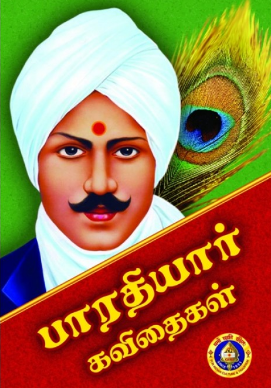
Continued from Here
Another beautiful poem on Kannamma by Bharathiyaar. Here he describes the relationship between Kannan and Kannamma.
We are living in the times of gender equality , that is not just restricted to male and female but a whole range of genders !
Equality is a western concept . It is a relatively modern idea that did not find a place even in Plato’s Republic, that held sway till the period of French revolution. In the face of it , the idea of equality looks like a ‘self evident truth ‘as in the American Declaration of Independence. Even this article of declaration mentioned only men; probably the equality of all humans was not self-evident then. Whatever be, now, equality seem to include all humans , though not extended to other beings as yet.
Fair play, justice and harmonious living are desirable virtues in any society.But is equality really required ? Has there been any society that has ever achieved equality among it’s members? We are not created equals , if the word created may be used, in physical or mental abilities or in temperament and the differences are nowhere more pronounced than in the genders.
This poem of Bharthiyaar describes a beautiful, harmonious, symbiotic relationship between Kannan and Kannamma. This is one of the songs where the poet addresses Kannamma in the compilation of poems under “Kannan Paattu)
http://www.lyricaldelights.com/ gives the lyrics in Tamil ; transliteration in roman letters for people who speak but can’t read Tamil and then translation to English for the others; click.
As always , it is only a few verses of a few songs that become popular, may be because of the singabilility , or that a renowned singer chose to sing those verses or simply because of political correctness of that period. It’s always a great insight to go through the entire song or whatever verses are left to us today, for much of Bharathiyaar’s writings were published after his time.
for the complete poem click.
Bharathi wrote for the masses; it is said he used to read his works to people, closely observing their reactions. If he felt that his audience is finding a word a little difficult to understand he re-wrote to make it simpler. Quite a contrast to some people who deliberately include rarely used words to sound scholarly and in the process end up making their work totally incomprehensible.
In this song, the poet picks up such complementary attributes and objectives where one becomes meaningless without the other. What is the point of eyesight without light and What is a song without a melodious tune to go with ?! What is a flower without fragrance?
Certain idioms are peculiar to Indian way of thinking . We always associate flowers with fragrance ,but in the West, they grow flowers that hardly have any fragrance. Even the rose by any name that smells as sweet, smells sweeter in our country. To fully appreciate the poet you need to think desi.
Bharathiyaar was not a saint and he wrote about every goal of Hindu life; Dharma (Righteousness, moral values) Artha (Wealth, economic values) , Kaama (pleasure, love, psychological values) and moksha (liberation, spiritual values) .
In this poem too he touches every aspect. He likens himself to security or ‘nest egg’ when he likens Kannamma to Wealth. While the first two lines of a verse describes the complementary attributes ,the last line of each stanza personifies Kannamma as Divine Music, Intoxication ,Pure Bliss and so on.
The song has been picturised in a few Tamil films and seeing these one may feel that it’s the patriarchal way of glorifying womanhood and yet relegating her to cooking, washing or child care. But any one who has read his poems on emancipation of women would understand that the great poet was far ahead of his times to keep women away from any profession.
In a modern society , men and women, all face different challenges at different points in our journey. And with those challenges will come the need to play a different role.
Bharthiyaar’s message on two individuals complementing each other’s role may be taken as to include changing of roles as required and yet celebrate cooperation rather than competition.
A quote by American poet , Edwin Markham comes to mind
For all your days be prepared, and meet them ever alike. When you are the anvil, bear—when you are the hammer, strike.
Here are some video clips of the song (some popular stanzas from the song)
I personally like the one by Indian Raga for the seamless switch from classical mode to folk mode , that shows the universal appeal these verses had on the learned as well as the masses.

